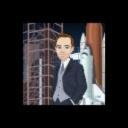Yahoo Answers is shutting down on May 4th, 2021 (Eastern Time) and beginning April 20th, 2021 (Eastern Time) the Yahoo Answers website will be in read-only mode. There will be no changes to other Yahoo properties or services, or your Yahoo account. You can find more information about the Yahoo Answers shutdown and how to download your data on this help page.
Trending News
What will the suns slow death do to the orbits of our planets and moons? What about the junk and dust?
5 Answers
- Anonymous4 years agoFavorite Answer
The Sun burns about 400 million tons of mass per second, converts the mass directly into energy at the core through nuclear fusion. 400 million tons sounds like a lot, but it's actually about the weight of prey (insects and otherwise) that spiders are said to eat every year. At that rate, the Sun's weight goes down 1% every 1.5 billion years! In about 4.5 billion years, when the Sun is expected to die, it's weight will only have gone down about 3%.
So at worst, the planets will have gone out a further 3% from where they are now by then. The moons' orbits will not have changed, as the planets aren't losing mass, so the moons will stay fixed in their current orbits.
- Anonymous4 years ago
As the sun loses mass, the orbits of all the planets will move outward over the next several billion years.
The moons will continue to orbit their planets.
The junk and dust will also move outward, some could be swept up by the planets, some will end up being expelled from the system due to an increased solar wind.
- marsLv 74 years ago
The Sun has another 4.5 billion years. This is when the Andromeda Galaxy will collide with ours. Our planets will help form a new giant elliptical galaxy.
- 4 years ago
The sun will expand about a 1000 times larger than it is now, and it's outer atmosphere will consume Mercury, Venus, and finally the Earth. The drag created on the planets will cause them to spiral inward, until tidal forces break them apart, and then 'rain' down on the sun's core.
The sun will slough off it's outer layers, creating a planetary nebula; that loss of mass will allow the outer planets to widen their orbits a bit, but it won't lose enough mass to *lose* any of them. The overall mass of the solar system won't change, so - we likely won't lose any bits of gas and dust.
- How do you think about the answers? You can sign in to vote the answer.
- QuadrillianLv 74 years ago
The orbits of the planets and moons (assuming that our solar system is still intact in a billion years or so) will be unaffected except perhaps for Mercury which will be swallowed up in the Sun's expanding atmosphere and it will thus spiral into the sun.
Sweep all the junk and dust in your room under the bed. When all traces of humanity have been fossilised and buried deep in the fossil record, your room and all it's dust and junk will be pretty much intact, just compressed somewhat by the overburden of hundreds of metres of rock and sediment.
Cheers!



